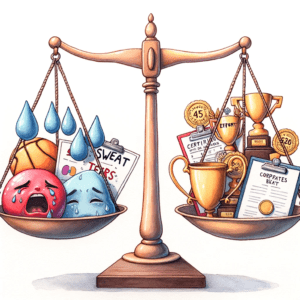Bible verses for all occasions.
Reaping what you sow is a concept that is frequently mentioned in the Bible. It refers to the idea that our actions have consequences, and whatever we invest in, whether good or bad, will eventually come back to us in some form. This principle can be found throughout the scriptures, reminding us of the importance of making wise choices and living a life that is pleasing to God.
Let us explore some of the key Bible verses about reaping what you sow and delve into their meanings.




Galatians 6:7-9
“Do not be deceived: God cannot be mocked. A man reaps what he sows. Whoever sows to please their flesh, from the flesh will reap destruction; whoever sows to please the Spirit, from the Spirit will reap eternal life. Let us not become weary in doing good, for at the proper time we will reap a harvest if we do not give up.” (Galatians 6:7-9, NIV)
In this powerful passage from the book of Galatians, the apostle Paul emphasizes the principle of reaping what you sow. He warns against deceiving ourselves into thinking that we can mock God or escape the consequences of our actions.
Paul explains that our choices have eternal significance, as we either sow seeds that please our flesh or the Spirit. If we sow seeds of selfishness and sin, we will inevitably reap destruction. Conversely, if we sow seeds of righteousness and obedience, we will reap eternal life. Paul encourages us not to grow weary in doing good, for there will be a harvest in due time for those who persevere.
Proverbs 22:8
“Whoever sows injustice reaps calamity, and the rod they wield in fury will be broken.” (Proverbs 22:8, NIV)
Proverbs, known for its wisdom literature, also addresses the principle of reaping what you sow. This verse emphasizes the consequences of sowing injustice. Those who engage in unjust actions will ultimately experience calamity and destruction. The verse also suggests that the very weapon used in anger will ultimately be broken, illustrating the futility and self-destructive nature of wickedness.
Hosea 10:12
“Sow righteousness for yourselves, reap the fruit of unfailing love, and break up your unplowed ground; for it is time to seek the Lord, until he comes and showers his righteousness on you.” (Hosea 10:12, NIV)
In the book of Hosea, we find a call to sow righteousness and reap the fruit of unfailing love. The passage encourages us to break up the hardened areas of our hearts and lives, allowing God to work in us. By seeking the Lord and aligning our actions with His righteousness, we can experience His abundant blessings and love.
2 Corinthians 9:6
“Remember this: Whoever sows sparingly will also reap sparingly, and whoever sows generously will also reap generously.” (2 Corinthians 9:6, NIV)
Paul’s second letter to the Corinthians reminds us of the principle that the measure of our sowing directly impacts our reaping. If we sow sparingly, we can expect a limited harvest. However, if we sow generously, we will reap abundantly. This verse highlights the importance of generosity, not only in material possessions but also in love, kindness, and all aspects of life.
Job 4:8
“As I have observed, those who plow evil and those who sow trouble reap it.” (Job 4:8, NIV)
In the book of Job, his friend Eliphaz makes an observation about the consequences of sowing evil and trouble. Job’s story serves as a reminder that those who engage in wickedness and cause trouble for others will ultimately experience the repercussions of their actions. This verse underscores the principle that our choices have consequences, whether positive or negative.
Proverbs 11:18
“The wicked man earns deceptive wages, but he who sows righteousness reaps a sure reward.” (Proverbs 11:18, NIV)
This proverb draws a contrast between the deceptive wages of the wicked and the sure reward of those who sow righteousness. It emphasizes that while the wicked may appear to prosper temporarily, their gains are ultimately deceptive and fleeting. On the other hand, those who sow righteousness will reap a sure and lasting reward from God.
Matthew 7:16-18
“By their fruit you will recognize them. Do people pick grapes from thornbushes or figs from thistles? Likewise, every good tree bears good fruit, but a bad tree bears bad fruit. A good tree cannot bear bad fruit, and a bad tree cannot bear good fruit.” (Matthew 7:16-18, NIV)
Jesus, in His Sermon on the Mount, uses the analogy of fruit-bearing trees to teach about the principle of reaping what you sow. He highlights the importance of discerning the character of individuals by examining the fruit of their lives. Just as a good tree bears good fruit and a bad tree bears bad fruit, our actions and choices reflect our true nature. This passage reminds us that our choices have consequences and that our fruitfulness is evidence of our spiritual condition.
Psalm 126:5-6
“Those who sow with tears will reap with songs of joy. Those who go out weeping, carrying seed to sow, will return with songs of joy, carrying sheaves with them.” (Psalm 126:5-6, NIV)
This beautiful passage from Psalms offers hope and encouragement to those who experience hardship and sorrow. It reminds us that even in times of tears and difficulty, our sowing will not be in vain. Those who faithfully sow in tears will eventually reap with songs of joy. This verse demonstrates that our perseverance and faithfulness in the midst of trials will yield a bountiful harvest of joy and blessings.
Proverbs 24:12
“Rescue those being led away to death; hold back those staggering toward slaughter.” (Proverbs 24:12, NIV)
Proverbs 24:12 highlights the principle of reaping what you sow in the context of social justice. The verse encourages us to take action and intervene when we see others being led astray or harmed. By sowing seeds of compassion and justice, we can help rescue those in desperate situations and prevent further harm. This verse reminds us of our responsibility to actively engage in acts of kindness and righteousness.
Proverbs 11:24-25
“One person gives freely, yet gains even more; another withholds unduly but comes to poverty. A generous person will prosper; whoever refreshes others will be refreshed.” (Proverbs 11:24-25, NIV)
Proverbs 11:24-25 emphasizes the principle of reaping what you sow in the context of generosity. The passage teaches that those who give freely and generously will experience even greater abundance. However, those who withhold and are stingy will ultimately come to poverty. This verse encourages us to cultivate a spirit of generosity and selflessness, knowing that our actions will be rewarded by God.
The concept of reaping what you sow is an integral part of biblical teaching. These verses remind us that our choices, actions, and attitudes have consequences, both in this life and in eternity. Whether we sow seeds of righteousness, love, and generosity or seeds of sin, injustice, and selfishness, we will inevitably reap the corresponding harvest. Therefore, let us be mindful of the seeds we are sowing and strive to align our lives with God’s principles, knowing that He is faithful to reward those who faithfully sow in accordance with His will.






